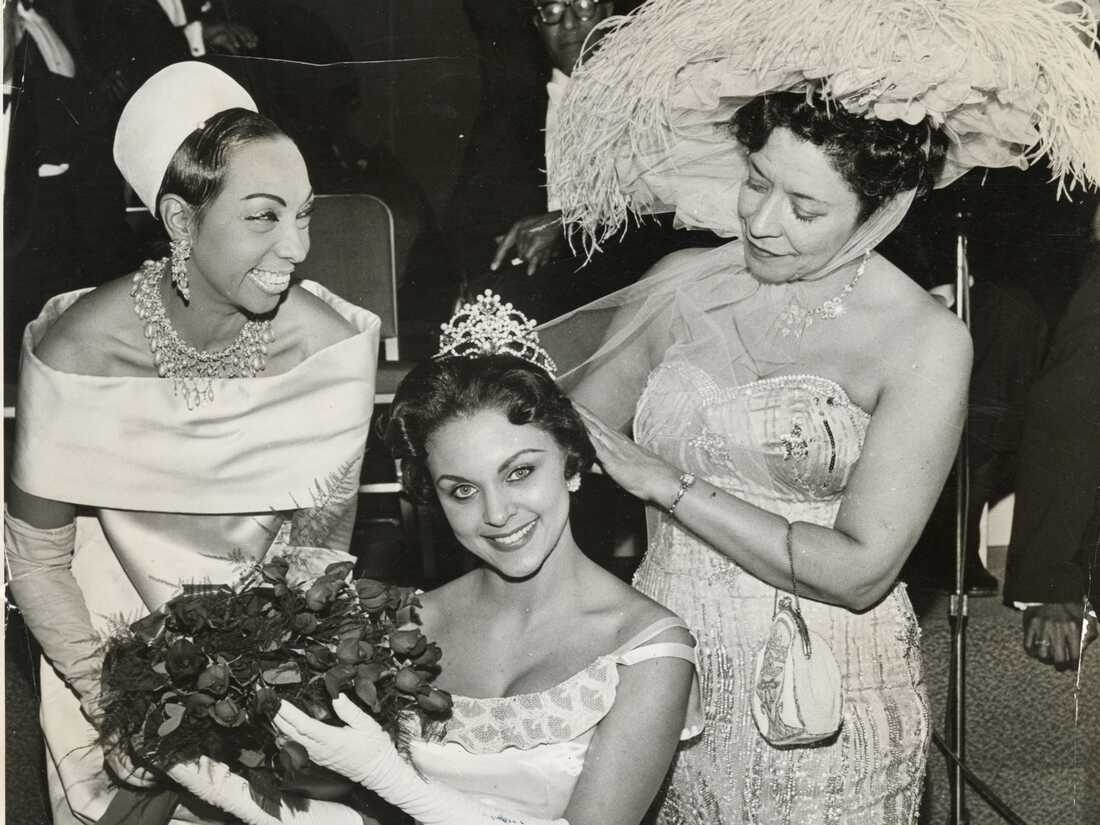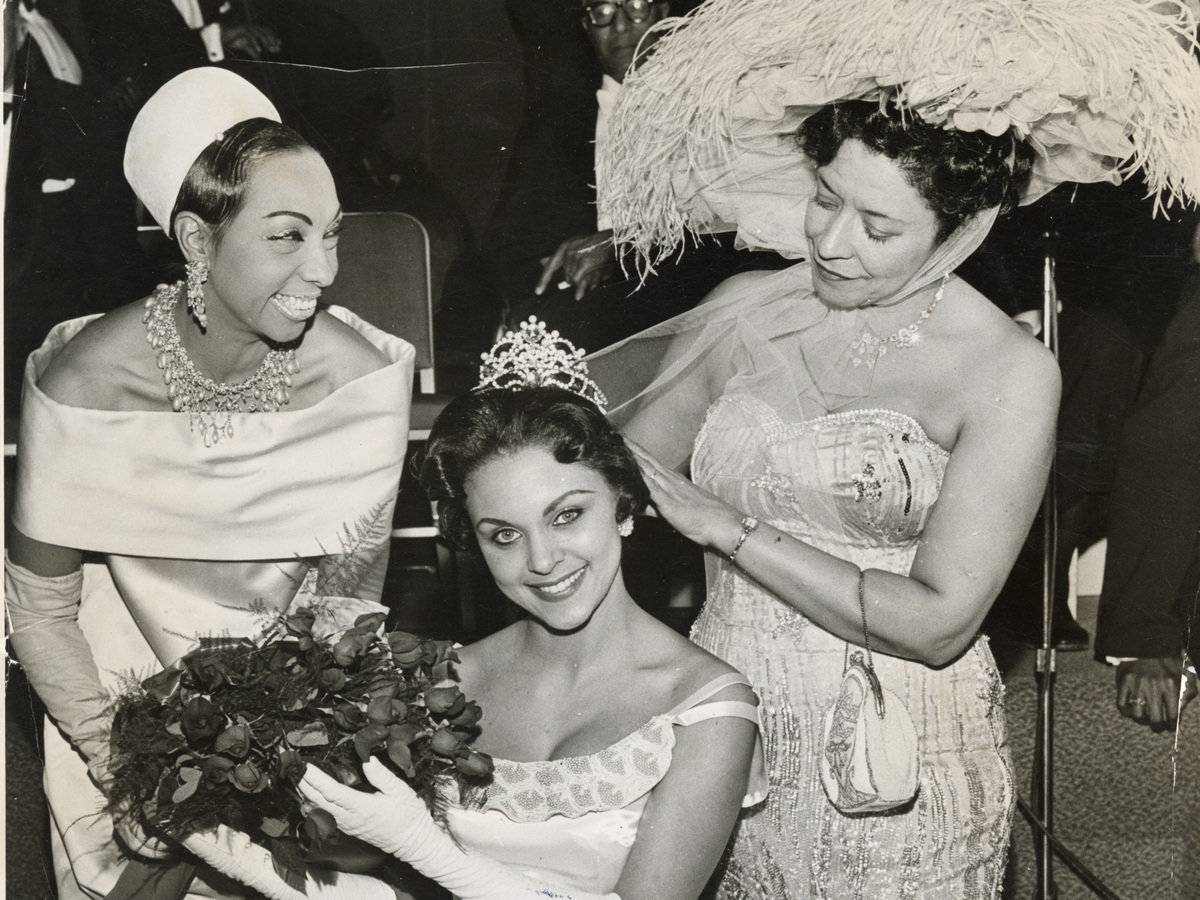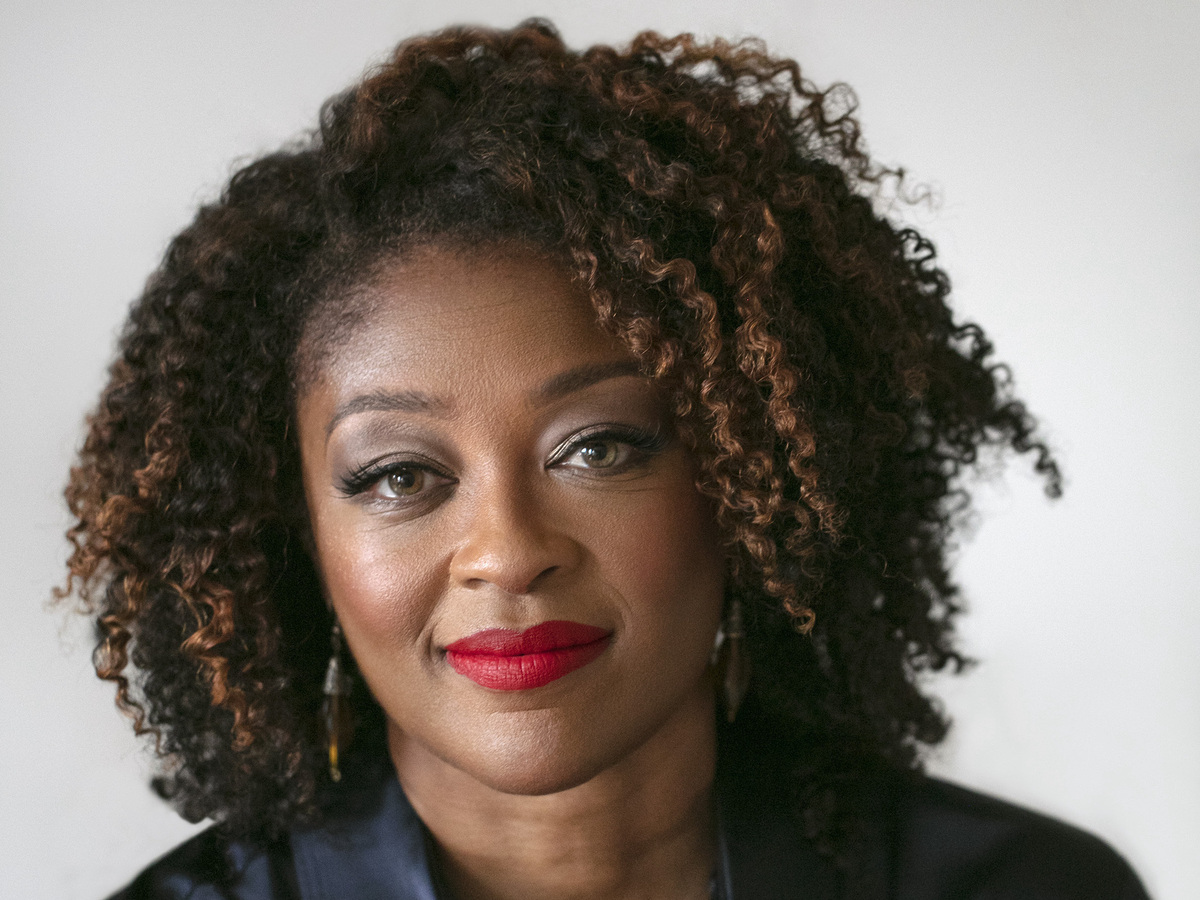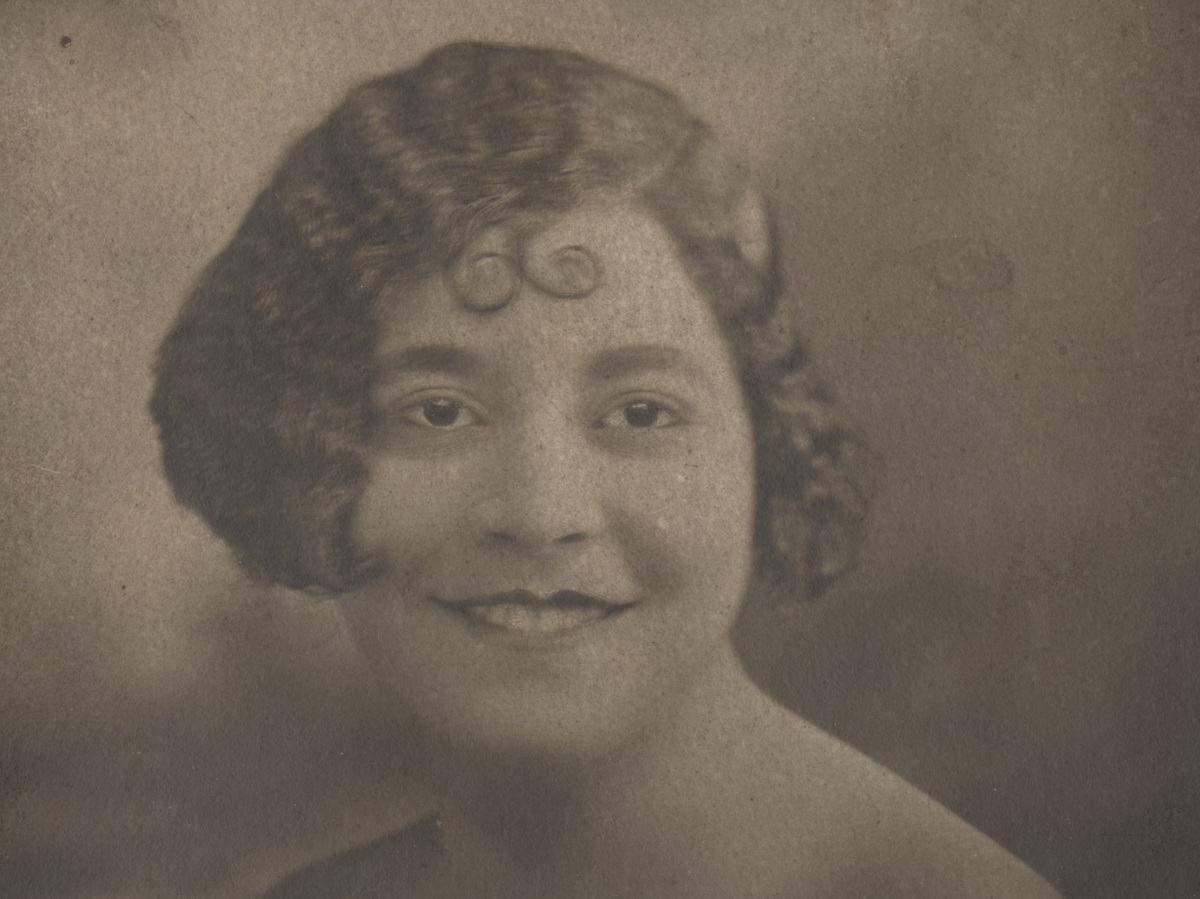
[ad_1]

Josephine Baker (left), Mollie Moon (proper) and the newly topped Pass over Beaux Arts Ball, 1960.
E. Azalia Hackley Choice of African American citizens within the Acting Arts/Detroit Public Library/Amistad imprint of Harper Collins
disguise caption
toggle caption
E. Azalia Hackley Choice of African American citizens within the Acting Arts/Detroit Public Library/Amistad imprint of Harper Collins

Josephine Baker (left), Mollie Moon (proper) and the newly topped Pass over Beaux Arts Ball, 1960.
E. Azalia Hackley Choice of African American citizens within the Acting Arts/Detroit Public Library/Amistad imprint of Harper Collins
Once we recall to mind the Civil Rights Motion, opulent events are most likely now not the very first thing that are evoked. Nevertheless it seems, they had been a large a part of the battle for racial justice — particularly the occasions arranged by way of Black socialite Mollie Moon within the Forties, ’50s and ’60s.
Referred to as some of the influential girls of the civil rights technology, Moon served as president of the fundraising arm of the Nationwide City League and is credited with elevating tens of millions to construct financial and racial equality within the U.S. However historian Tanisha Ford says she handiest heard of Moon by accident, whilst doing analysis for every other challenge.
“I stumbled around the title Mollie Moon within the newspaper clippings of the early Sixties. … She was once web hosting this wonderful attractiveness festival that celebrated the wonderful thing about Black girls,” Ford says. “So I simply tucked her title at the back of my thoughts and idea, ‘I will write one thing about this girl.’ “
As Ford accrued press clippings about Moon, she learned there was once a bigger tale to learn, “person who made folks acutely aware of this nice chief of the Civil Rights Motion who had fallen out of the narrative.”
Moon’s New York Town events attracted stars like Billie Vacation and Josephine Baker, in addition to rich white donors, Black elites and dealing magnificence Black folks. However Moon confronted grievance from activists who had been skeptical of taking cash from wealthy white liberals.
“What African American citizens feared was once that that more or less affect would then steer the motion clear of the problems that African American citizens cared about and … towards problems that felt protected for white American citizens,” Ford says.
Ford notes that debates about cash, affect and social justice are nonetheless related lately. However, she provides, fundraising is a an important — and often-overlooked — a part of the Civil Rights Motion.
“I’ve discovered that when I began to show my consideration to the cash, that this tale humanizes those folks much more, and it makes the stakes of motion construction all of the extra transparent,” Ford says.
Ford’s new ebook is Our Secret Society: Mollie Moon and the Glamor, Cash and Energy In the back of the Civil Rights Motion.

Our Secret Society: Mollie Moon and the Glamour, Cash, and Energy In the back of the Civil Rights Motion, by way of Tanisha Ford
Harper Collins
disguise caption
toggle caption
Harper Collins

Our Secret Society: Mollie Moon and the Glamour, Cash, and Energy In the back of the Civil Rights Motion, by way of Tanisha Ford
Harper Collins
Interview highlights
On Moon’s celebrity-packed events
Those events, by way of all accounts, had been fabulous. Her signature tournament was once the Beaux Arts Ball. She would host that tournament annually since 1940, and it was once an tournament that started out in Harlem on the Savoy Ballroom after which moved within the Sixties, the early Sixties, to the Astoria Resort in midtown New York. And those occasions introduced in combination all types of folks, as you discussed, everyone from weary subway employees and home laborers to titans of business, together with the Rockefeller circle of relatives, folks like Billie Vacation. Katherine Dunham at one level was once a sponsor for the development. I even discovered within the information the place she had invited the Duke and Duchess — the previous king of England [Edward VIII] and Wallis Simpson — to be judges for the costumed affair portion of the Beaux Arts Ball.
At the systems funded by way of the Nationwide City League
They had been investment the whole lot from voter registration drives to such things as the March on Washington, but in addition Black adolescence systems. Mollie Moon’s level was once in pharmacy, and ahead of she went into social paintings, which turned into her long-term profession, she had a dream of turning into a biology instructor. So she was once deeply invested in what lately we name STEM. And so numerous the budget went towards investment Black adolescence, for them to have instructional systems. After which different issues funded newshounds. So their fundraising efforts funded a big selection of social-justice orientated, racial-equality-minded occasions that experience had a deep affect on group construction within the African American context.
On journalist Lillian Scott’s grievance of Black folks networking with rich white liberals
[Scott] does constitute that technology of more youthful, extra radical Black newshounds who’re pronouncing, “Hiya, wait a minute. We need to understand that the wealth that the Rockefellers and others of those elite households who’re clamoring to fortify the Nationwide City League have collected has come from a gadget of slavery.” … And Lillian Scott was once pronouncing we will have to now not be seduced by way of the partiality robes and invites to celebration within the Rainbow Room as a result of African American citizens, by way of and big, are nonetheless dwelling in abject poverty on this country. And a posh celebration isn’t going to undo generations of monetary disparities. So she … would use her column in the Chicago Defender to discuss those problems with race and sophistication and gender and truly talk about them in a posh means, however the use of the cheeky type of the society pages to do it. So her columns are a real gem on the subject of working out the nuances of those race and sophistication dynamics within the mid-Twentieth century.
At the grievance of white philanthropy — then and now
One of the most considerations then, that is still now, is that there should not be an accumulation of wealth first of all, however that even funneled into actions that oftentimes creates one of those stagnation the place the cash is not being then redistributed to the communities that want it maximum. So there’s a structural factor on the subject of how we even manner fundraising for the motion: Who will get the cash and what sort of period of time is regarded as applicable for the cash to be redistributed to Black communities? In order that worry was once for sure there.

Tanisha Ford is a professor of historical past at The Town College of New York.
Darcy Rogers/Amistad imprint of Harper Collins
disguise caption
toggle caption
Darcy Rogers/Amistad imprint of Harper Collins

Tanisha Ford is a professor of historical past at The Town College of New York.
Darcy Rogers/Amistad imprint of Harper Collins
The opposite piece of this is, smartly, as soon as the instant passes, if we have now transform dependent upon this white hand of philanthropy, then what can we do then when white folks make a decision that they now not need to give this cash to our motive? And that is every other factor that we have noticed play out within the provide second, the place in 2020 there was once a surplus of cash being given to organizations like BLM and the Nationwide City League and the NAACP, who won much more cash than BLM did, to be transparent. However what occurs in 2021, 2022, 2023, the place we begin to see a retrenchment on the subject of the forms of cash that is being given to racial justice, virtually to the purpose now the place pronouncing “racial justice” is sort of a grimy phrase, despite the fact that it was once so en style simply a few years in the past?
At the lesson of Moon’s existence

{A photograph} of Mollie Virgil Lewis (Mollie Moon), circa 1926.
Henry Lee Moon Circle of relatives Images, Western Reserve Historic Society, Cleveland, Ohio./Amistad imprint of Harper Collins
disguise caption
toggle caption
Henry Lee Moon Circle of relatives Images, Western Reserve Historic Society, Cleveland, Ohio./Amistad imprint of Harper Collins

{A photograph} of Mollie Virgil Lewis (Mollie Moon), circa 1926.
Henry Lee Moon Circle of relatives Images, Western Reserve Historic Society, Cleveland, Ohio./Amistad imprint of Harper Collins
The longer I sat with Mollie Moon’s archive — along with her letters, along with her private keepsakes, taking a look at pictures of her — I spotted simply how courageous this girl needed to be to be so unapologetically herself in a period of time the place Black folks had been being persecuted day by day, for the colour in their pores and skin. And if there’s anything else that I feel Mollie Moon would wish us to grasp, it’s that each human being in this earth merits so that you can stroll within the fullness of themselves within the fullness in their humanity. And I feel that her project of Black pleasure, a Black pleasure that so contagious that everybody on the earth would have the benefit of that more or less pleasure, is person who truly resonates lately. That if shall we simply step outdoor of ourselves lengthy sufficient to acknowledge the struggling of somebody else and be keen to sacrifice one thing of ourselves, whether or not that be a small greenback monetary providing, whether or not it’s volunteering our time, whether or not it’s calling a congressperson, that if we had been keen to do this for somebody else, then we have now the facility to make the type of exchange that we want to see on this international.
Heidi Saman and Seth Kelley produced and edited this interview for broadcast. Bridget Bentz, Molly Seavy-Nesper and Meghan Sullivan tailored it for the internet.
[ad_2]

